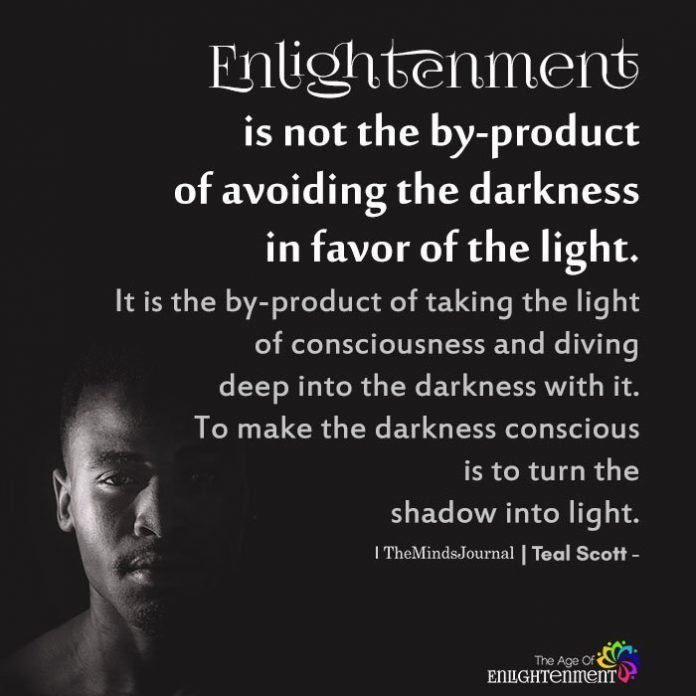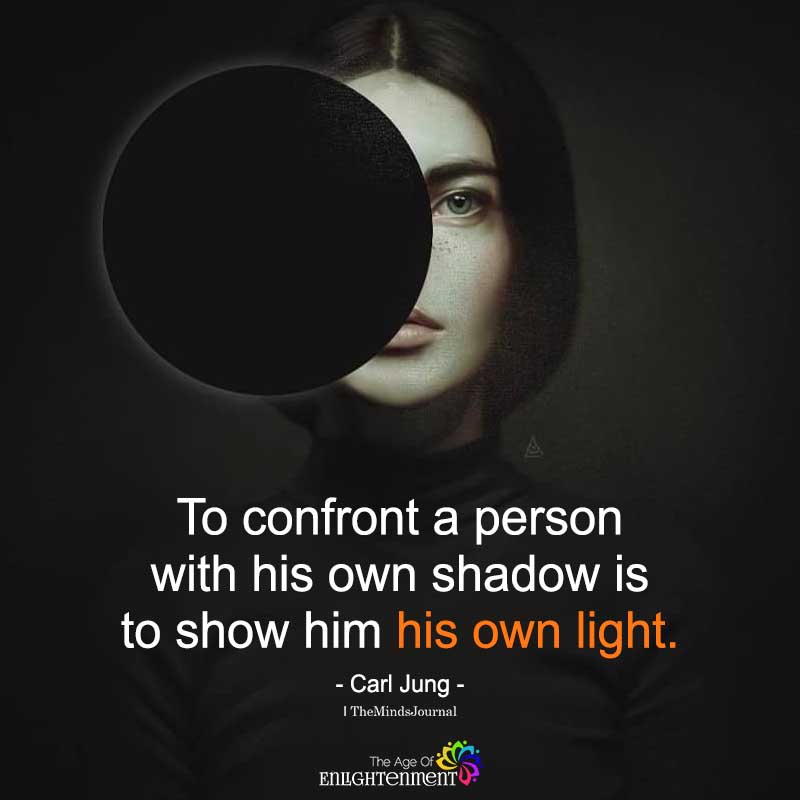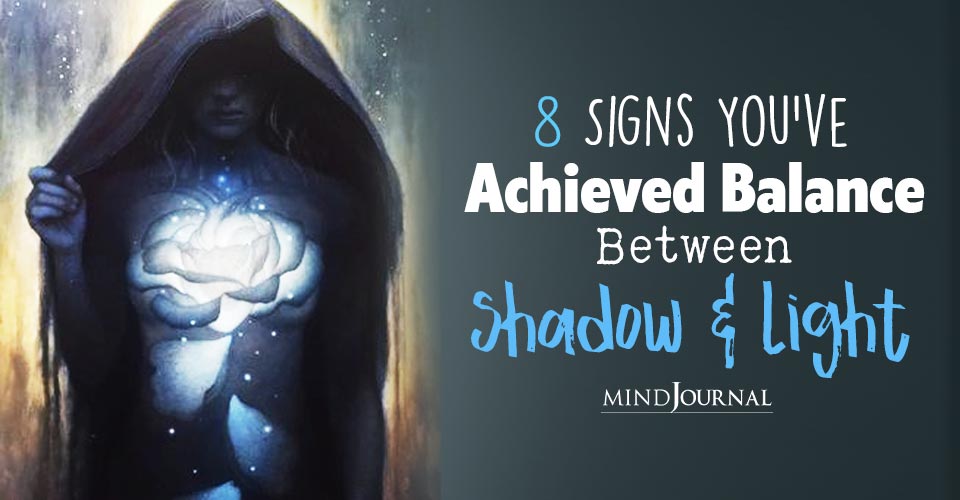Balance in any aspect of life is good. But why is it necessary? In the battle of shadow and light, which of the contrary are you seeking, or is there parity?
We often lose sight of the true meaning of balance when we become entangled in finding positivity or just searching for the light. As they say, “there can be no light without darkness”, We need equilibrium or balance in everything.
We often get disconnected from how reality actually functions. We unintentionally suppress the dark and cling to the light. Codependence reinforces instead of interdependence.
Interestingly enough, often we fail to acknowledge our positive qualities and they can live in our shadow too. And that’s why you need to achieve balance between shadow and light.
Are you one of those who are attempting to survive in the healthiest way possible?
Well, the integration of the battle of shadow and light is no easy task. But it is vital if we want to be the best version of ourselves.

Below are some of the signs of balance between shadow and light to understand if you achieved the equilibrium of the contraries.
Did You Achieve Balance Between Shadow And Light? Here’s How To Find Out
Related: 3 Ways You Can Use Your Inner Darkness To Awaken Your Light
1. Making peace with your demons
We all have a Shadow. We all have our own inner demons that we ignore at our own great peril.
You need to be aware that if you suppress or detach from your shadow, you will be unable to achieve the balance necessary to be strong, brave, and self-reliant.
You are the owner of the shadow. In order to become more comprehensive, you integrate the shadow as a whole.

It takes skill to bring awareness to the darkness. It’s a risky, sensitive undertaking that must be done carefully. Achieving a balance between the two is more important than any other task.
2. You can easily put on, use, take off and dispose your “mask”
You come to understand that the self is concealed from the top down and perceives illusions from the bottom up. You have a thorough knowledge of how the human mind creates illusions rather than serving as a window to reality.
As a result, you’ve decided to adopt and take off your various masks with humorous nonchalance.
You have a strong sense of humor when it comes to accepting and challenging your various misconceptions because you understand that we are all just the butt ends of a highly amusing cosmic joke.
In the face of too serious and inflexible dogmatism, the secret is playful and adaptable skepticism. You bring balance to your self-development and compassion and open-mindedness toward the development of others.
This is possible by integrating your many masks (light and dark, tame and untamed, finite and infinite) and accepting that you are delusional and merely cling to whatever particular delusion gets you through the day.
3. You have mastered the Alchemy of Emotions
Emotional alchemy is a process whereby a person can convert their emotions into something of greater value for them.
So when it comes to striking a balance between light and shadow you are to alchemize your emotions to actualize them into healthy action.
You understand practicing emotional alchemy allows you to have a psychological transformation.
For instance, being courageous despite fear is practicing emotional alchemy. How you proactively engage circumstances more healthily and holistically while honoring your inner emotional state.
This can be applied to almost any emotionally charged situation. Feel fear, act with courage. Feel road rage, act with humor. Feel grief, act with steadfastness.
Feel grandiosity, act with humility. Feel insecure, act with confidence. Feel vengefulness, act with forgiveness. Action and awareness is the key to balancing your emotional state.
4. You have tapped into the balance of being humble yet grandiose
The balance between grandiosity and humility sets us on a path toward self-improvement rather than tripping over our self-embellishments.
We all have grand ambitions, but when we add humility, it prevents us from being capricious and complacent. It helps us remember that we’re human.
So, when you realize that having a low-grade grandiosity, by nature, alters your perception of reality and makes it difficult to have an accurate assessment of your abilities, which causes us to overestimate your skills and underestimate the obstacles you face.
The problem isn’t the grandiose energy but it is what you do with that energy. The secret ingredient to this is humility.
We all want to feel important and we have the urge to be better. Ambition is universal to all. But when you focus that energy on impractical delusions or use it to inflate your false ego, you prevent yourself from truly improving.
Having the assumption that you are already great and worthy of attention and adoration is when you fall short of humility.
So maintain a balance between dark and light – channel your grandiose energy into a project, into achieving a goal, or into solving complex problems, but be humble, and keep your grandiosity grounded.
This energy impels you to improve your skills and methods. If you practice this, you’re maintaining a dialogue with reality rather than stepping out of it.
5. You honor and acknowledge your inner archetype
If you are a man, you are deeply in touch with your inner femininity (Amina). And if you are a woman, you are deeply in touch with your inner masculinity (animus). These are your inner archetypes.
You become aware of how integrating your anima/animus makes you less codependent and more interdependent.
Your worldview expands, and you become more sensitive to the forces of nature. You are less prone to become trapped in sexist or culturally imposed gender norms.
Related: Why Embracing Your Dark Side Is Crucial For Your Growth
6. You have learned to transform setbacks into stepping stones
You look at each of your failures like steps on the precarious ladder of life. Each of these steps is just a rigid failure and your suffering, but if you put them together you form a ladder that you can climb up into something meaningful.
You are determined to make the obstacle the path. Thus, you practice transforming failure into fearlessness and wounds into wisdom. You view mistakes as stepping stones, pivot points, and serendipitous improvisation rather than as setbacks or hang-ups.
If you have learned one of the most powerful secrets in the universe: the shadow can be your worst enemy or your greatest ally.
Related: Shadow Work: How To Let Your Inner Demons Guide You
7. You have accepted both your human and cosmic nature.
You are aware that being a human is inherently flawed, irrational, hypocritical, or prone to mistakes. As a result, you balance your wormwood with your godhood and vice versa.
You proactively redefine the idea of cosmic or Godliness, after recognizing that any human idea of God would always be flawed. You are torn between shadow and light, fear and love, finitude and infinite.

In the same vein, you create a sacred zone for your success. Your godliness is taught humility through your wormlike nature.
Your wormlike nature is taught higher consciousness by your godlike nature. The harmony between the two generates providence and functions as an elixir of life.
8. You are not torn between the conditional and the unconditional
You have a strong mind but also a vulnerable heart. The conditional heart can envelop and bring you down. Whereas the unconditional heart allows you to be loving yet act in kindness.
But it’s important to achieve a balance between shadow and light of the conditional and unconditional heart.
By practicing non-attachment you’ve learned to control what you can and let go of those things you cannot. Your feelings don’t restrict you from doing certain deeds.
The Takeaway
This concept of the light and shadow psychology is similar to yin and yang, masculine and feminine, day and night, where darkness does not imply negativity and light does not imply positivity.
The two are simply two polarities of the same energy; none is positive or negative. Therefore, be mindful to strike the ball for a balance between shadow and light.
Frequently Asked Questions (FAQs)
What is my shadow in psychology?
In psychology, the shadow is an unconscious part of our personality that does not correspond with the ideal self, which leads the ego to resist and project the shadow.
What is shadow self?
The shadow is generally referred to the parts of ourselves that we repress or find unacceptable.
What is shadow work?
Shadow work refers to working with your unconscious mind to uncover the parts of yourself that you hide and repress from yourself.











Leave a Reply